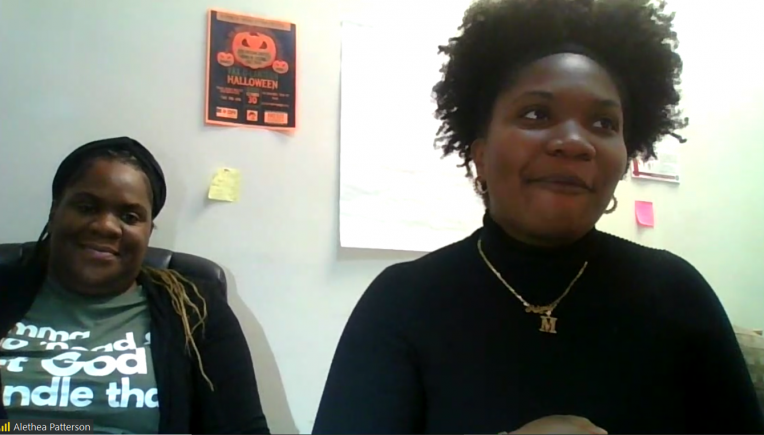The National Center for Urban Education (NCUE) in Chicago works directly with Illinois State University faculty to offer students a firsthand look at culturally responsive practices through urban education and community experiences. This 15-year-old program directly relates to ISU’s comprehensive plan to promote equity, inclusion, and anti-racism by supporting and promoting discourse aligned with campus values of diversity and inclusion. This fall semester, 25 course sections have participated in NCUE clinical experiences virtually with one participating in person with the hope of moving to more in-person visits as clinical experiences return to K-12 classrooms.

Dr. Becky Beucher recognizes the importance of considering K-12 students’ funds of knowledge when designing curriculum and learning experiences, saying that “culturally responsive teaching (CRP) is just sound pedagogy.” Beucher, in collaboration with NCUE, has taught redesigned sections of TCH 219 Teaching Multiple Literacies & Technology Across the Secondary Curriculum since 2017.
This fall, students in both sections of her course were able to meet remotely with community leaders, teachers, and parents from the Auburn Gresham neighborhood to get an authentic look at education and family life on Chicago’s South Side. Guest speakers included Melanie Christion from the Greater Auburn Gresham Development Corporation (GAGDC) Education team; John Harris, youth mentor/coach at St. Sabina; and Alethea Patterson, resource case manager at GAGDC and a parent in the community. Beucher’s goal was for students to walk away from these experiences with community scholars not only with greater insights but also with deeper questions to spark future growth.
Dr. Mark Zablocki’s SED 342 Language and Literacy Development’s students also met virtually with these community scholars from Auburn Gresham. Even though Zablocki is a former Chicago Public Schools student and teacher, he did not feel well versed in culturally responsive pedagogy until coming to ISU in 2011. By connecting with the Chicago Teacher Education Pipeline (now NCUE), he has deepened his own understanding of CRP and can share that knowledge with his students. His goal for his education students is to “see past stereotypes and media (mis)representations of communities.” Through NCUE immersion experiences, community assets become more concrete for his students as they also learn about authentic reading strategies that are culturally responsive.
Community scholars offered insight from a point of view unfamiliar to many of the ISU students. Christion spoke about various pillars of GAGDC, ISU’s partner community-based organization, including helping senior residents with home repair, providing summer and after-school activities for school-age youth, sponsoring vaccination events, and providing food pop-ups. ISU students are often surprised at the multitude of supports available in urban communities. Christion cautioned them not to buy into stereotypes they hear. For example, GAGDC’s annual 79th Street Renaissance Festival attracts thousands of people each September but has never had any report of violence over the past 14 years. Yet, Christion emphasized, that is not what is covered on the news about the community.

Harris works with youth at highest risk of violence involvement. He spoke about the importance of listening, understanding the needs and the language of the community, and building relationships as key factors for teachers working in his neighborhood. Harris offered advice to ISU education students, counseling them to “find a person’s gifts,” and form partnerships with the home.
Patterson told ISU students that building positive communication with parents around their schedules and preferences was paramount to a teacher’s success. She also warned the future teachers about coming into the community with a “savior complex” and attempting to “fix” students and families.
Afterward, students reflected that they now recognize the importance of getting involved with the community, knowing the available resources, and communicating positively with families. Notably, they report that it is paramount for teachers to ask what is needed rather than simply assume the teacher knows best.
These types of immersion experiences offer students a perspective that they may not have had before, providing them with insights that will help them in whatever classroom setting they find themselves in when they become teachers. Both Zablocki and Beucher stressed that CRP standards will be incorporated into all Illinois pre-service teacher programs at universities by 2025. NCUE functions to create partnerships and collaborations with community-based organizations and Chicago Public Schools to support ISU faculty as they align their courses with these standards.
For more information about the various programs offered, go to ncue.illinoisstate.edu.

